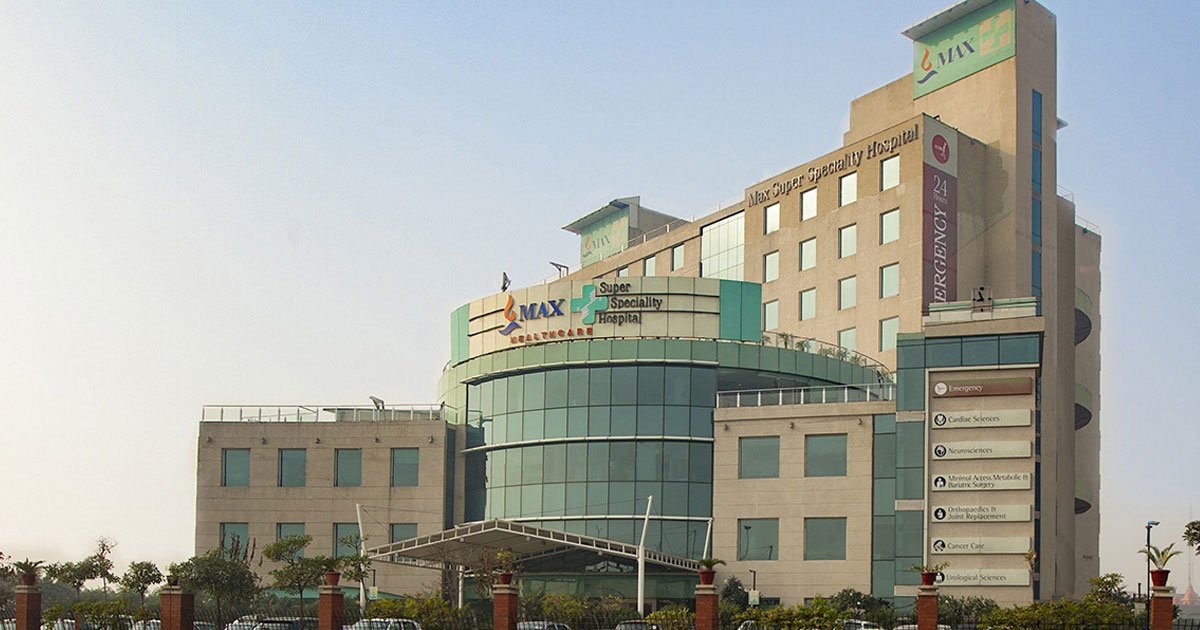Max Hospital Shalimar Bagh License Cancellation
A baby and his twin sister who were prematurely born on November 30 at the Shalimar Bagh hospital were declared stillborn after which the Delhi government cancelled its registration. And a lot has been already said about Max Hospital Shalimar Bagh license cancellation. Being a doctor myself, let me make few things clear which were not mentioned by the media while reporting the incident.
Technically, the newborn delivered at 22 weeks of gestation does not even qualify to be defined as a baby. It is rather called a foetus. As per the current protocol, a 22-week foetus with a weight of less than 500 grams is not viable or not fit for survival outside the mother’s body. And there is no requirement to resuscitate because the chances of survival are negligible. This may be what happened in the present case. But media did not bother to research the facts; however, everybody clamoured to sensationalize the story. Had the news reporters done some research, the coverage would have been more balanced.
Max was quick to react. They investigated the matter and terminated the services of the errant doctors. But even after that, the Government cancelled the hospital’s license.
I would like to ask, why they have taken this decision of shutting down the hospital just at one person’s fault? It is doing more harm than good and here are the reasons why…
WHAT ABOUT THE PATIENTS IN SITU?
I am thinking about the several desperately ill people who are regular patients there. Where will they go? What about the emergencies that reach the hospital? The government’s decision of sudden cancellation has actually jeopardized more lives through its action.
The hospital group claimed, “Max Hospital, Shalimar Bagh on a monthly basis treats around 14,000 patients in the OPD, attends to over 1,600 emergency patients and additional 3,000 are treated in inpatient wards. In compliance with the cancellation order, not only did we have to turn down the OPD and new IPD, but, planned procedures such as 171 chemotherapies, 63 surgeries, and 241 dialysis sessions had to be cancelled, rescheduled or transferred.”
Also Read: What Are The Risk Factors Of Breast Cancer?
LIMITED ACCESS TO MEDICAL FACILITIES FOR LOCAL RESIDENTS
Cancellation and closure of a hospital that may contain 30 departments is not a solution of problems. The hospital says they’re not allowed to take any new patients and only carry on the treatment of those already admitted.
This decision has caused significant inconvenience not only to thousands of patients but also for local residents. Unavailability of suitable alternatives for their medical needs in the vicinity has further aggravated their problems. Where will they rush in case of any medical emergencies?
LIVELIHOOD AND EMPLOYMENT OF STAFF AT RISK
Max Hospital Shalimar Bagh license cancellation has put the livelihood of over 1,800 staff at risk. According to Max Healthcare Authorities, the Shalimar Bagh tertiary care entity employed about 1,185 medical staff, including doctors and nurses, besides 682 administrative and support staff. Is it right to affect the livelihood and employments of thousands of medical and non-medical staff because of just one doctor’s negligence?
The doctor-patient ratio in India is dismal. There is one doctor for every 2,000 people, according to the Medical Council of India.
What will be gained after removing these trained medical staff from service?
IMPACT ON MEDICAL PROFESSION
I would request the politicians and the media to stop making doctors the “soft target”. This episode will not only malign the image of the medical profession but also put a negative effect on society as a whole.
Has anyone thought, what impact it will put on those budding minds that are pursuing or considering a career in the medical field? They would be left stranded to ponder over their choices. Doctors around the country will think twice before stepping forward for any complicated case after this incident.
Also Read: Causes And Home Treatment Of Plantar Fasciitis (Heel Pain)
HASTY DECISION BY DELHI GOVERNMENT FOR POLITICAL MILEAGE
Earlier, the hospital administration said that the Delhi government’s ruling was harsh, and an adequate opportunity should be given to them to be heard.
According to the Delhi Nursing Home Registration Act, 1953, the government needs to give notice of 30 days before cancelling a license. An appropriate notice period should have been given to the hospital so that patients do not suffer. Making the patients suffer and stranding trained doctors and nurses who were not even involved in the whole scenario. How can this be justified?
The recent incident prompts me to write all this. There is no denying the fact that medical negligence does take place and is highly condemnable. But when one or two staff members are at fault, why the whole community of a medical profession is being questioned?
Half-baked truths and ill-informed media reporting can sow seeds of suspicion among the common people about the conduct of doctors. No doctor wants to intentionally harm a patient. We want our doctors to be perfect, but they are not God. To err is human and doctors are human too. As for the medical error, it will occur. Instead of locking up institutions every time a medical practitioner errs, we should try to strengthen the processes at the hospitals and improve the standards of training, especially the documentation and counselling part.
It’s true; nobody can even imagine the pain and suffering of the parents who lost their premature twins. The family should be compensated and the administration should definitely be penalized, not just for the error but also for the callous dispensation of the bodies in a polythene bag. That is indefensible conduct and has nothing to do with human error. The dignity of life should be maintained at all times.
I, therefore, request Delhi Government to review their decision and restore the registration in the interest of public welfare.
